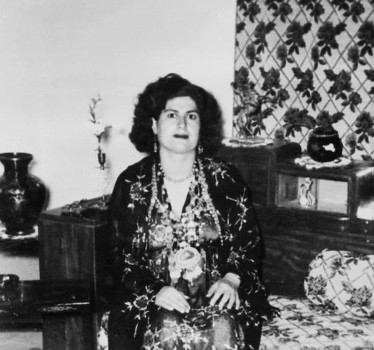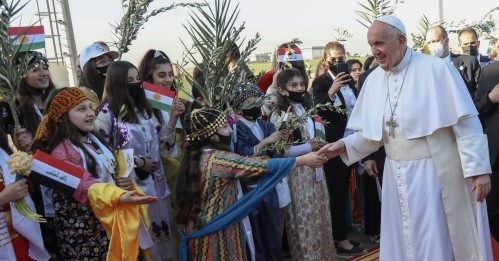In 1991, in the aftermath of the Gulf War to liberate Kuwait from the former Ba’ath regime of Iraq, the Kurds in the north rose up to finally free their areas from the decades-long systematic oppression of Saddam Hussein. This uprising led the Kurds to establish a semi-autonomous political entity with its own legislative, executive, and judicial bodies.
On May 19, 1992, six months after the historic uprising, the first parliamentary elections were held in the Kurdistan Region of Iraq, with a minimum threshold of 7% set for representation in Parliament. It was the first chance for the Kurds to vote for their representatives and marked a turning point in the history of the Kurdish struggle for freedom, self-rule, and democracy.

The 1992 election led to the formation of the first Kurdistan Parliament – initially named the Kurdistan National Assembly. The leadership and people of the Kurdistan Region decided to adopt and abide by all Iraqi laws except for those that violated international human rights. The Kurdistan National Assembly convened for the first time on July 15, 1992, and passed Law No. 1, which established the Assembly as the Region’s legislature. Over a decade later, in 2009, the Kurdistan National Assembly was renamed the Kurdistan Parliament.
To date there have been five region-wide parliamentary terms, following elections in 1992, 2005, 2009, 2013, and 2018. In February 2009, several amendments were made to the Kurdistan election law to increase the inclusiveness of all groups. The minimum age of parliamentary candidates was lowered from 30 to 25 years old, and the legal minimum quota of female parliamentarians was raised from 25% to 30% of the legislature.
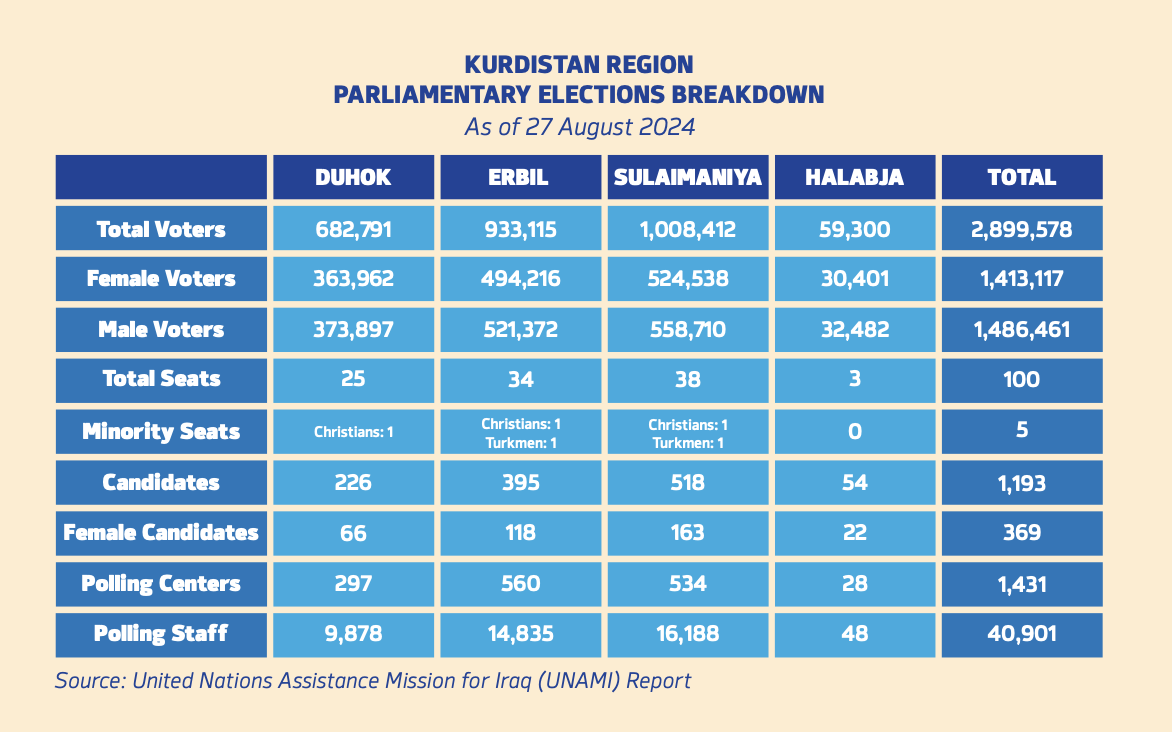
Kurdistan Parliament’s legal jurisdiction
The Kurdistan Parliament, according to the 2005 Constitution of Iraq, passes regional laws, decides on treaties and external affairs, shapes the relations with the federal government of Iraq, votes on nominated prime ministers and government cabinets, approves the national budget, and monitors performance of the executive institutions of the region.
According to the latest updates on the Parliament’s official website, the legislature had 19 standing committees during the fifth term of the Parliament, which included legislative, agriculture, finance, culture, education, religious affairs, energy, health, integrity, interior and security, martyrs’ affairs, municipalities, Parliament affairs, peshmerga affairs, women’s rights, investment, international affairs, human rights, and Kurdistani areas outside the Kurdistan Region.
These committees constitute the backbone of the Parliament’s work, where lawmakers hold most of their meetings with the government, organizations, and individuals. Members of these committees also draft legislation, investigate issues, and hold consultations.
The parliamentary committees are also mandated to review bills and proposed amendments, consult with experts and stakeholders about bills, and submit their suggestions to the Parliament’s Presidency. They also scrutinize the performance of the government and the implementation of laws.
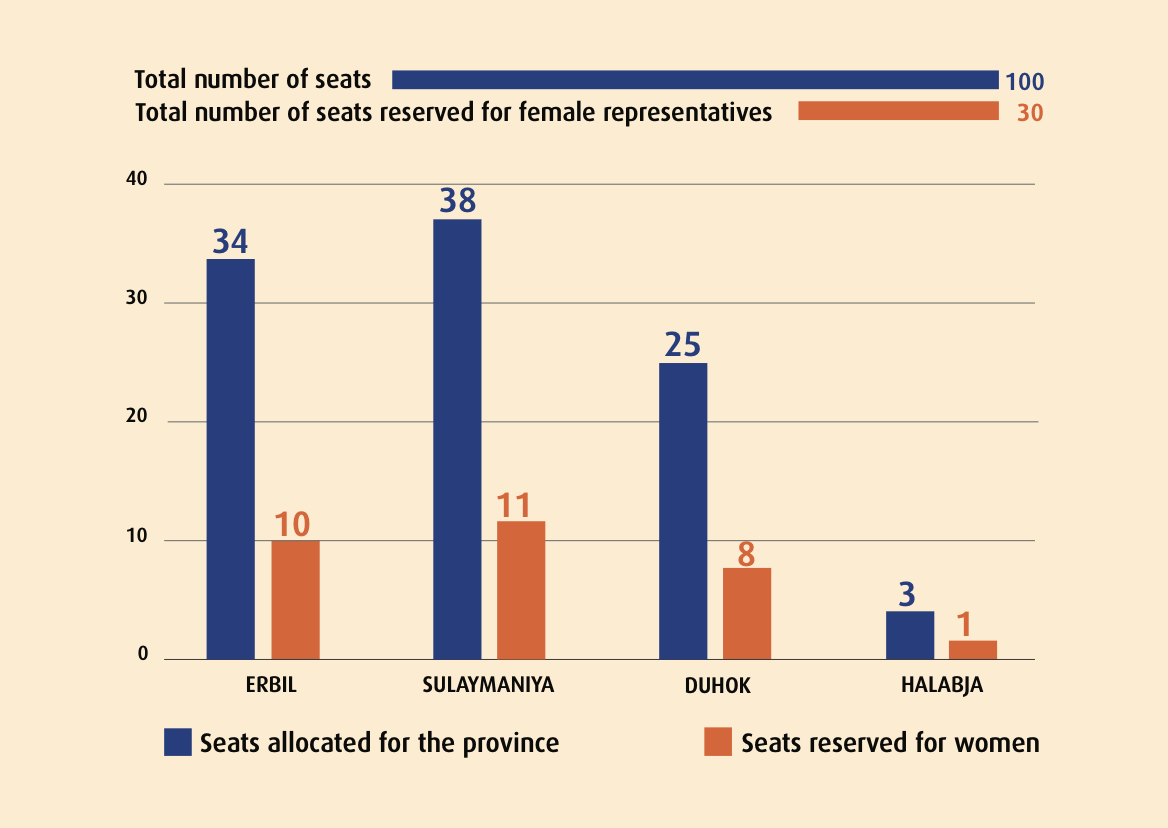
The upcoming election
Following repeated delays, Kurdistan Region President Nechirvan Barzani in June 2024 issued a regional decree to set October 20, 2024, as the general parliamentary election day, with special voting for security personnel to occur two days earlier.
These elections follow a series of legal and political developments, including a ruling by the Federal Supreme Court of Iraq that restructured the electoral constituencies and mandated specific quotas for women and minorities. Unlike the previous elections, the Iraqi Independent High Electoral Commission will replace the Kurdistan Region’s electoral commission to organize and oversee the vote as the latter’s legal mandate has expired and the Kurdish political parties have failed to reach an agreement on the renewal of its mandate.
Key features of the 2024 elections
In a report on August 29, the UN Assistance Mission for Iraq (UNAMI) provided details about the upcoming elections, noting that the vote is “seen as an essential step in restoring political stability and legitimacy to the Kurdistan Regional Government.”
In the wake of internal political disputes arbitrated by the Federal Supreme Court, for the October 20 elections the region will be divided into four single electoral constituencies. In previous elections, however, the Kurdistan Region had a single constituency for the vote.
Furthermore, a minimum of 30% of parliamentary seats are reserved for women, to allow women in Kurdish society to be well represented in the legislature. As for religious and ethnic minorities, the Federal Supreme Court lowered their quota seats from 11 to five, with two seats in Erbil, two in Sulaymaniyah, and one in Duhok. However, the minorities believe that neither the allocated seats nor their distribution across the governorates reflect their current reality on the ground.
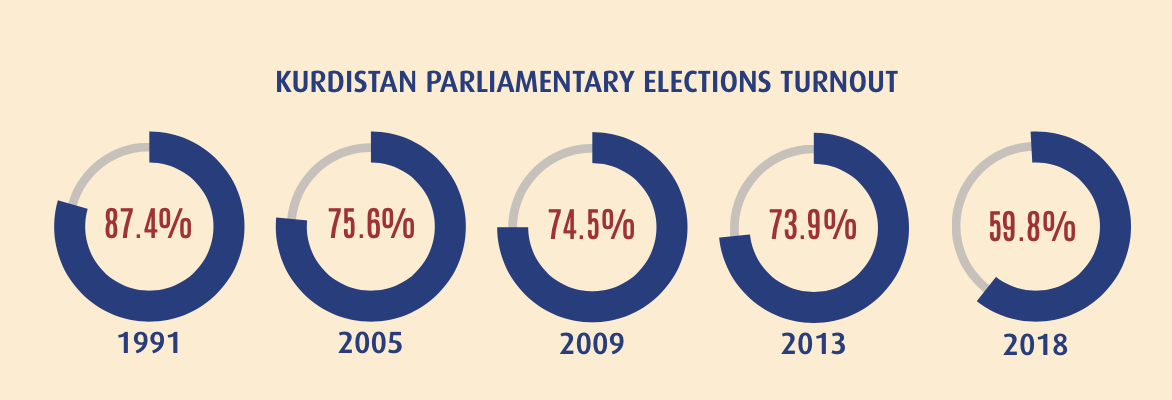
According to the latest statistics, the total number of voters across the four governorates of the Kurdistan Region stands at 2,899,578, including 1,413,117 women and 1,486,461 men. Among them are 215,960 security personnel.
For the upcoming elections, 1,196 candidates (369 women and 827 men) are running for the 100-seat Parliament. The electoral commission has planned to set up 1,431 polling centers with a total of 7,067 polling stations. To organize the voting and ballot counting procedures, voter verification devices, polling center optical scanners, and results transmission systems will be utilized.
Finally, the upcoming elections will not only determine the future political landscape of the Kurdistan Region, but also renew the international legitimacy of the region as a semiautonomous political entity. Envoys from most Western countries and UNAMI have welcomed the announcement of these free and fair elections and offered support to help the repeatedly postponed elections to occur as scheduled.
“UNAMI reiterates its readiness to work with the Independent High Electoral Commission and all other relevant institutions, as mandated by Security Council resolution 2732 (2024), to ensure inclusive, free, and fair elections, with the full participation of women and all other components of Kurdistan Region society,” read a statement from UNAMI from June 26, 2024.
Sardar Sattar is a translator and journalist based in the Kurdistan Region. He has translated several books and political literature into Kurdish and English. He writes regularly for local and international newspapers and journals.
